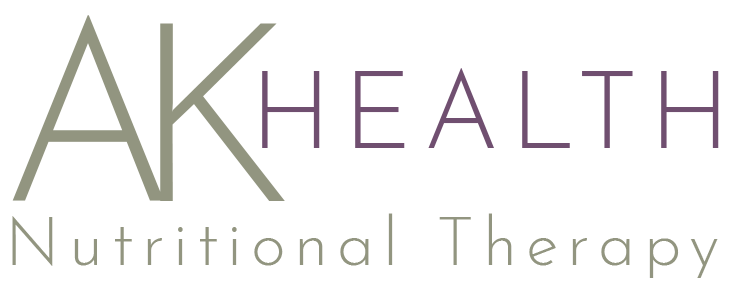April is “Stress-Awareness Month”. Did you know that eating the right foods can contribute to building physical and psychological resilience? Pre- and probiotic foods are amongst those foods that help nurture healthy gut bacteria which in turn may have a positive influence on our mental and physical health.
When we talk about bacteria in the gut, we are usually talking about bacteria in the large intestine, the colon. You may have heard the term “microbiome”, which is a universe of all kinds of different microorganisms running all through your digestive tract.
These microorganisms play a crucial role in maintaining overall health, as they help to break down food, make vitamins, regulate your immune system, and prevent the growth of harmful pathogens. As a nutritionist, it’s one of the areas that fascinate me and I spend a lot of time in clinic talking to people about how they can use food and supplements to support the health of their microbiome.
Research tells us that the composition of the microbiome can vary widely from person to person, and that changes in the microbiome may be associated with a variety of health conditions, including inflammatory bowel disease, obesity, and diabetes. As a result, there is growing interest in understanding more about the microbiome and its role in health, and in developing strategies to maintain or modify the microbiome for therapeutic purposes.
Probiotic foods
Probiotic foods are foods that naturally contain live microorganisms like bacteria or yeasts. They are often referred to as “functional foods” as they provide nutritional benefits beyond basic nutritional needs. Think of these as providing your body with additional healthy bacteria.
Some of the most common probiotic foods include:
Yoghurt: Yoghurt is made by fermenting milk with bacterial cultures, typically Lactobacillus bulgaricus and Streptococcus thermophilus. Some yogurt products also contain additional probiotic strains, such as Lactobacillus acidophilus and Bifidobacterium lactis.
Kefir: Kefir is a fermented milk drink that is made by combining milk with kefir grains, which contain a mixture of bacteria and yeasts. Kefir is rich in probiotics and may also contain other beneficial compounds, such as vitamins and minerals.
Sauerkraut: Sauerkraut is a fermented cabbage dish popular in Europe that is made by combining shredded cabbage with salt and allowing it to ferment for several days. The fermentation process produces lactic acid, which gives sauerkraut its distinctive sour taste and also serves as a natural preservative.
Kimchi: Kimchi is a spicy Korean dish that is made by fermenting vegetables, typically cabbage, with a mixture of spices and seasonings. Kimchi is rich in probiotics and may also contain other beneficial compounds, such as antioxidants and anti-inflammatory compounds.
Miso: Miso is a Japanese condiment that is made by fermenting soybeans with a type of fungus called Aspergillus oryzae. Miso is typically used as a seasoning in soups and other dishes and is rich in probiotics and other beneficial compounds, such as antioxidants and vitamins. You can buy miso soup to drink as a snack and also miso paste, which you might use in cooking, from many supermarkets.
What about probiotic drinks?
You will undoubtedly seen mass-produced and heavily advertised drinks like Actimel and Yakult on supermarket shelves. Unfortunately, many of the popular ones do not have enough bacteria and/or the bacteria do not survive the harsh digestive environment in the stomach, therefore do not have an impact. Additionally these either have added sugars or sweeteners to make them palatable.
Prebiotic Foods
Prebiotics are a type of dietary fibre that are not digested in the small intestine, but instead reaches the large intestine where it serves as a food source for beneficial gut bacteria. They feed the bacteria that are already there and help promote the growth and activity of specific types of bacteria that are considered beneficial for health.
Some common types of prebiotics include inulin, fructooligosaccharides (FOS), and galactooligosaccharides (GOS). These prebiotic fibres are found naturally in many plant-based foods, such as bananas, onions, garlic, leeks, asparagus, artichokes, and whole grains.
Cruciferous vegetables are also very helpful for your digestion, they contain compounds called glucosinolates, which are fermented by bacteria and used as fuel.
Examples are: Bok choy, broccoli, Brussels sprouts, cabbage, cauliflower, kale and spring greens.
Prebiotics have been shown to have a variety of health benefits, including improving digestion, boosting the immune system, reducing inflammation, reducing anxiety and improving the absorption of certain nutrients. Additionally, research suggests that prebiotics may help reduce the risk of certain health conditions, such as type 2 diabetes, heart disease, and colorectal cancer.
It is important to note that while prebiotics are beneficial for health, they can also cause digestive discomfort in some people, particularly when consumed in high amounts. Anyone with IBS, for example, should approach some of these foods with care. What lurks behind the majority of cases of IBS is bacteria in the small intestine, where we don’t really want it (large intestine, yes, small intestine, no). Your body really should do a daily swoosh of all bacteria from the small intestine down to the colon (called the Migrating Motor Complex) but for a variety of reasons that might not occur. What can then happen is the bacteria in the small intestine can feast on these lovely prebiotic foods, causing gas, bloating and discomfort. That’s not my telling you don’t eat these foods but, if you have digestive problems, start with small quantities until you work out what your body can tolerate.
5 important things your gut bacteria do for you
1 Kill bugs and hostile bacteria
these can cause unpleasant symptoms or disease – like the ones that cause food poisoning or stomach ulcers.
2 Boost your immunity.
60% of your immunity is in your gut and the immune tissue in your digestive system is very sensitive to bacterial activity. The good bacteria also encourage the body to make a particular kind of antibody that stops you getting sick.
3 Reduce anxiety and improve mental resilience.
Studies have shown that probiotics may increase bifidobacteria in particular which have been linked to a decrease in anxiety.
4 Make vitamins & help you absorb nutrients better.
Your gut bacteria are responsible for making many B vitamins, and these same bacteria help you absorb minerals in the food you eat better.
5 Protect against disease.
Some bacteria produce enzymes that turn the fibre you eat into short chain fatty acids (SCFA). This is interesting because these SCFAs can help protect against heart diseases by regulating cholesterol and having a positive impact on fats in the blood. A particular type of SCFA called butyrate has been shown to be protective against cancer.
Get in touch if you would like to discuss this further by clicking here…


